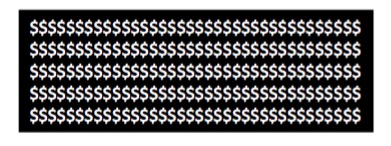G20 Needs to Boost Banking Supervison - Five Major Banks Pay Fines for Currency Manipulation
A version of this article first appeared on www.transparency.org (the website of Transparency International) November 12, 2014 --
On the eve of the Group of 20 Summit in Brisbane, Australia, a group of the world’s biggest banks have agreed to pay $4.2 billion in fines to U.K., U.S. and Swiss authorities to settle charges that they fixed international currency markets over many years.
This agreement should underscore to the G20 leaders that they need to increase sharply cooperative actions to supervise the global operations of the world’s largest banks. The G20 has acted forcefully on banking regulation, and further key decisions on capital requirements for the biggest banks are set to be determined this weekend. But the G20 has failed to be equally compelling on banking supervision.
New capital, leverage and liquidity requirements on banks do not suffice to make the global financial system sound. No less important is firm banking supervision to ensure integrity in the culture that drives banks. Today, the culture of many institutions, judged by the many settlements of cases, is often characterized by corruption and unethical behavior.
This is highlighted by the agreements with HSBC Holdings PLC, Royal Bank of Scotland PLC, UBS AG, Citigroup Inc. and J.P.Morgan Chase & Co., to pay fines for foreign exchange market manipulation. Some of these banks, as well as a number of others, are also being investigated for allegedly rigging international interest rates over many years. The detailed agreements were published by the Commodities FuturesTrading Commission in the U.S., by the Financial Conduct Authority in the U.K. and by FINMA, the Swiss FinancialMarkets Authority . Additional banks are also under investigation by these authorities.
The statements by the authorities show that the banks abused their power to enrich themselves. The authorities said that they found, for example, that traders at the banks at times shared confidential customer information to fix deals and market trades. The customers lost, the bankers won.
There have been so many cases of banking malpractice and unethical behavior in recent years that top bankers are the first to admit that public trust in banks is at an all-time low. They say they are concerned about this, but at the same time they ascribe the illicit activities on rogue employees. Not a single chief executive officer of a major bank has been fined or faced court trial as a result of the many diverse cases against banks on both sides of the Atlantic.
Many banks are instituting new practices to strengthen employee ethics training and boost risk management compliance. The problem is that such efforts are not bringing fundamental change to the culture in many banks that places profit maximization above all other objectives. This is where greater banking supervision has a key role to play.
To be effective, supervisors need to be highly skilled and genuinely expert in the often highly complicated and technical areas of financial trading, such as in the foreign exchange markets. This demands that banking authorities invest in training their staffs and ensure that supervisors have compensation rewards that suffice to secure top talent. These are essential steps if corruption in banking is to be curbed. A bold statement by the G20 would be most helpful.
